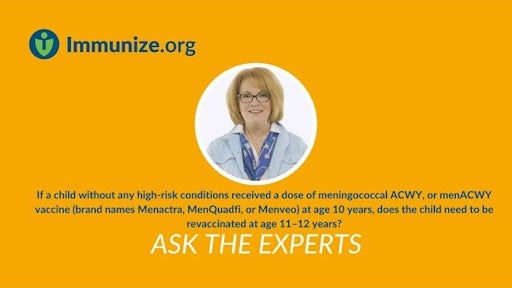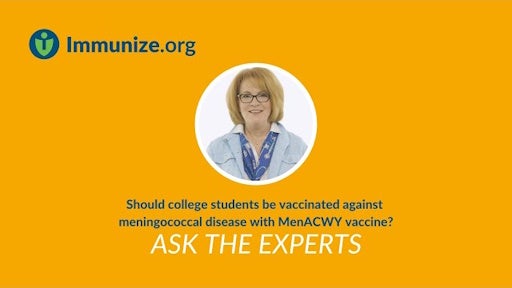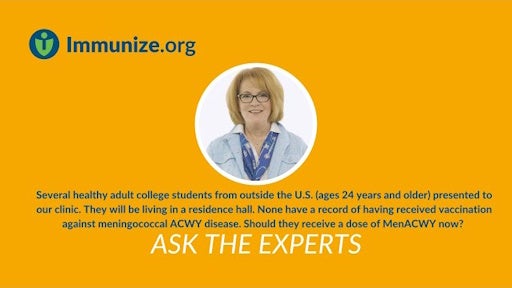- Meningococcal ACWY
- Vaccine Recommendations
What meningococcal vaccines are available in the United States?
The vaccines for meningococcal serogroups A, C, W, and Y (MenACWY-TT, MenQuadfi [Sanofi]; MenACWY-CRM, Menveo [GSK]) contain meningococcal conjugate in which the surface polysaccharide is chemically bonded (“conjugated”) to a protein to produce a robust immune response to the polysaccharide. The MenACWY vaccine products are considered interchangeable; the same vaccine product is recommended, but not required, for all doses.
Two meningococcal vaccines were used in the recent past but are no longer available. Menactra (Sanofi) is a discontinued MenACWY conjugate vaccine. The last doses of Menactra expired in 2023. Menactra was considered interchangeable with Menveo or MenQuadfi. An older meningococcal polysaccharide vaccine (MPSV4, Menomune, Sanofi) was available in the United States until the last doses expired in 2017: it was never routinely recommended for children or teens.
Since late 2014, vaccines have become available that offer protection from meningococcal serogroup B disease (MenB; Bexsero by GSK; Trumenba by Pfizer). These vaccines are composed of proteins found on the surface of the bacteria. Bexsero and Trumenba are not interchangeable; the same vaccine product is required for all doses.
A pentavalent MenACWY and MenB vaccine, abbreviated MenABCWY (Penbraya, Pfizer) contains a conjugated MenACWY vaccine mixed with the MenB vaccine contained in Trumenba (Pfizer).
MenACWY vaccines provide no protection against serogroup B disease, and MenB vaccines provide no protection against serogroup A, C, W, or Y disease. For protection against all 5 serogroups of meningococcus, it is necessary to receive both MenACWY and MenB, either as separate vaccines or as the combination MenABCWY vaccine, Penbraya.
|
*May be given to adults at increased risk older than the FDA-approved upper age limit (see ACIP recommendations, Table 11, page 41, www.cdc.gov/mmwr/volumes/69/rr/pdfs/rr6909a1-H.pdf)



